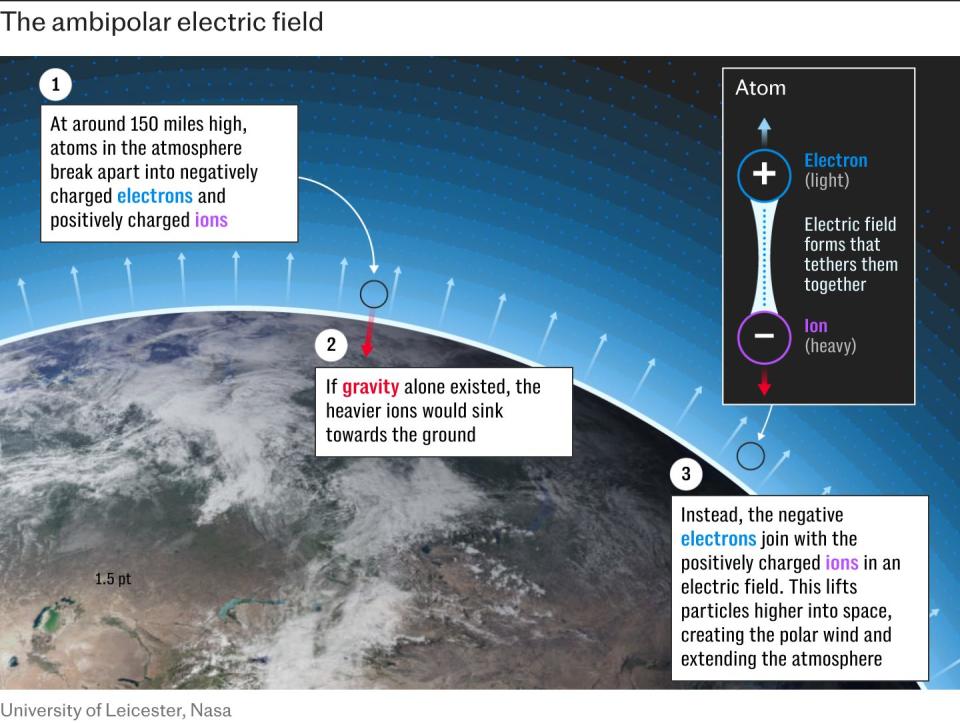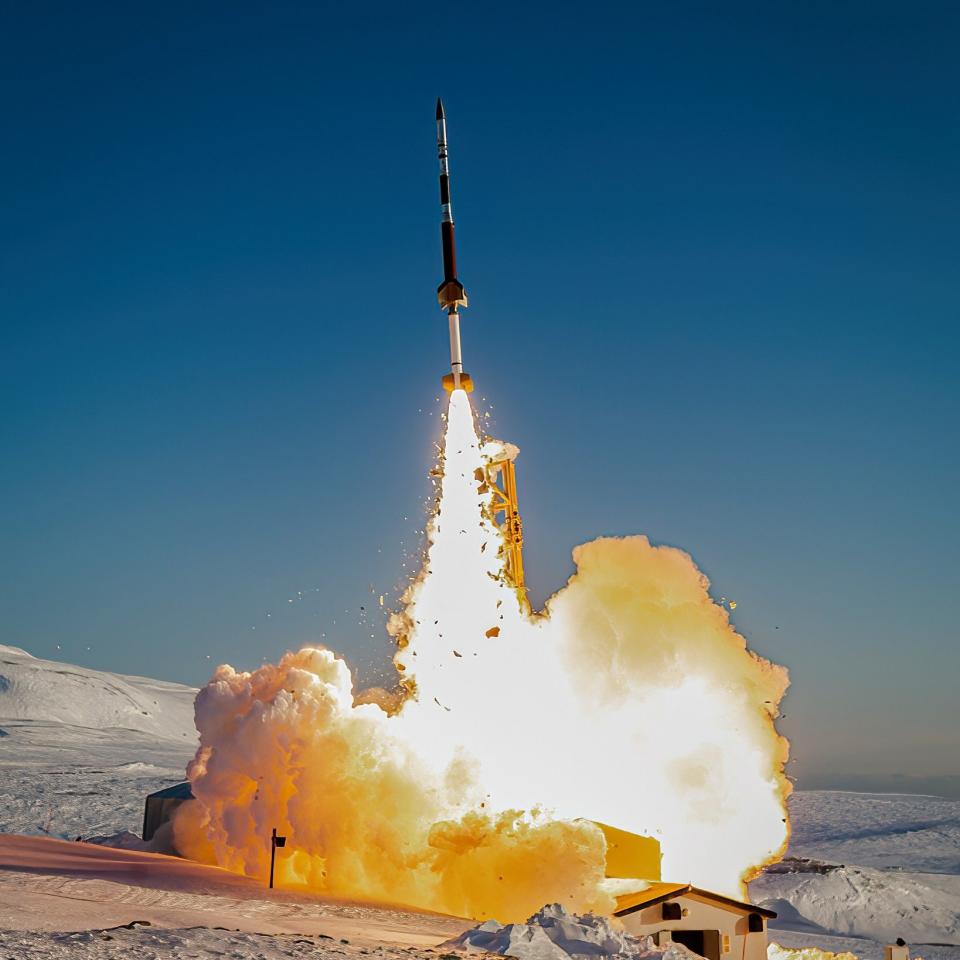A new planet-wide electric field that is as fundamental to Earth as gravity has been discovered in a major scientific breakthrough.
The ambipolar electric field, which begins 150 miles above the planet, has been described as a “great invisible force” that lifts up the sky and is responsible for the polar winds.
The polar winds interact with the jet streams to help drive the majority of weather patterns across the globe.
Until now, the field had only been theorised, but a Nasa team, which includes scientists from the University of Leicester, has now sent a rocket into the field and measured it for the first time.
It means Earth now has three energy fields: gravity; the magnetic field, which shields the planet from cosmic radiation; and the ambipolar electric field.

Dr Glyn Collinson, the principal investigator of the Endurance Mission at Nasa Goddard Space Flight Centre in Greenbelt, Maryland, said: “Whenever spacecraft have flown over the poles of the Earth they have felt this supersonic wind of particles called the polar wind.
“There must be some invisible force lurking there responsible for this outflow, but we’ve never been able to measure it because we didn’t have the technology.
“This field is so fundamental to understanding the way the planet works. It’s been here since the beginning alongside gravity and magnetism. It’s been wafting particles to space and stretching up the sky since the beginning.”
The field has been hard to detect because it is extremely weak, just 0.55 volts. But it is enough to nearly treble the scale height of the ionosphere – part of the upper atmosphere that sits between 30 and 600 miles above sea level. The scale height describes how quickly the atmosphere fades away, meaning the ionosphere remains denser at greater heights than it would without it.


“Despite being weak it’s incredibly important, it counters gravity and it lifts the skies up. It’s like this conveyor belt, lifting the atmosphere up into space,” added Dr Collinson.
“A half a volt is almost nothing – it’s only about as strong as a watch battery. But that’s just the right amount to explain the polar wind.”
Understanding the atmosphere is crucial to the evolution of Earth and could help scientists spot other planets that could be habitable. The team believes that any planet with an atmosphere is likely to have an ambipolar field.
To launch into the ambipolar electric field, scientists needed to travel to the world’s most northerly launch pad, on the site of Ny-Alesund in Svalbard, Norway, just a few hundred miles from the North Pole.


The mission, which began in 2016, was named Endurance after the ship that carried Ernest Shackleton on his voyage to Antarctica in 1914.
Prof Suzie Imber, a space physicist at the University of Leicester, and co-author of the paper, said: “Svalbard hosts the only rocket range in the world where you can fly through the polar wind and make the measurements we needed.”
The team found that hydrogen ions, the most abundant type of particle in the polar wind, experience an outward force from this field, which is 10.6 times stronger than gravity.
Alex Glocer, the Endurance project scientist at Nasa Goddard and co-author of the paper, said: “That’s more than enough to counter gravity – in fact, it’s enough to launch them upwards into space at supersonic speeds.”
The discovery of the field was announced in the journal Nature.
Dr Collinson added: “What makes Earth the special place that we all call home? One of the reasons may be to do with the energy fields that our planet creates.
“One of them is gravity. It’s important for life because it’s holding our atmosphere up. The second field is the magnetic field that’s protecting our planet from the stream of particles that comes from the sun
“Our rocket has discovered, and finally measured, number three. Now that we’ve finally measured it, we can begin learning how it’s shaped our planet as well as others over time.”
